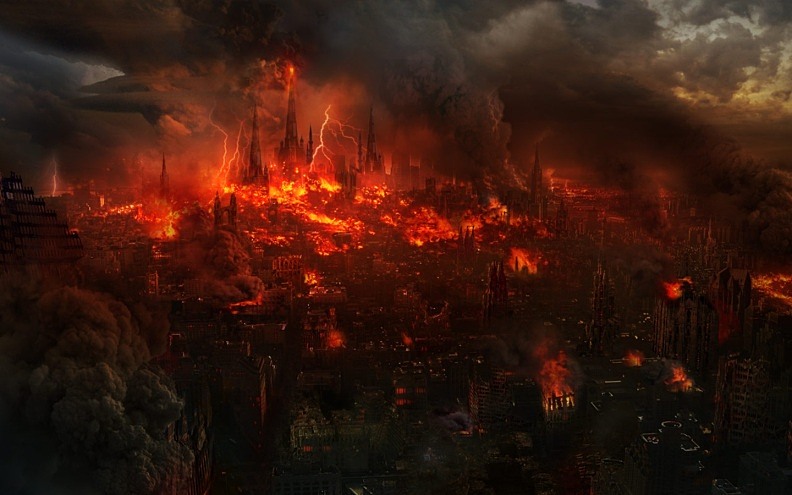Following Jesus Off the Grid?
·
My Bible study group is working its way through portions of the Book of Revelation. It’s my last study of the group before I retire, so it’s fitting that we explore the final book of the New Testament. This week we found ourselves in chapter 18, which speaks of judgment upon Babylon, which is a stand-in for Rome. In this chapter, John declares that Babylon has fallen and become the dwelling place of demons and is haunted by foul spirits, foul birds, foul and hateful beasts. That once grand city of Babylon/Rome is not abandoned. It’s desolate. It is fallen.
Fallen, fallen is Babylon the great!
It has become a dwelling place of demons,
a haunt of every foul spirit,
a haunt of every foul bird,
a haunt of every foul and hateful beast.3For all the nations have drunk
of the wine of the wrath of her fornication,
and the kings of the earth have committed fornication with her,
and the merchants of the earth have grown rich from the power of her luxury.” (Rev. 82-3)
Apocalyptic texts like Daniel and Revelation tend to hold empires in contempt. They come and they go, so don’t put your trust in them.
The
temptation is there, of course, because Rome’s glory and splendor are
intoxicating. But, can a follower of Jesus embrace Rome and remain faithful?
Or, should we give head to the voice from heaven that calls on believers to
“Come out of her, my people, so that you do not take part in her sins, and so
you do not share in her plagues; for her sins are heaped as high as heaven, and
God has remembered her iniquities” (Rev. 18:4-5).
We had
a good discussion about the implications of this message. It’s good to remember
that John wasn’t speaking here of leaving the empire (at least geographically).
However, he was speaking of participating in the life of the empire, which
would involve participating in the imperial cult—the civil religion of his day.
It’s good to remember that participating in the economic system involved not
only the imperial cult, but most trade unions, guilds, and social groups were tied
to pagan religious rites. So, what do you do if you want to get a job? Do you
offer a sacrifice to Domitian or maybe Vulcan/Hephaestus?
As
chapter 18 moves along, we watch as kings, merchants, and the shipping industry
all mourn the fall of their patron, Rome. “Alas, alas, the great city, Babylon,
the mighty city! For in one hour your judgment has come” (Rev. 18:9). Rome’s
future seems to be sealed. Judgment will come, but what about the people of
God? Must they get off the grid, which means not participating in the broader
economy? What about us? Does John have a message for us living in the 21st
century with a very different system, or so it would seem. John is concerned
about accommodating the empire and its culture. I will admit, I benefit from the
culture. I enjoy the benefits of my situation in life. There are faith
communities, like the Amish, who largely off the grid. But, I’m not sure that’s
the life for me. Is it the life for you?
All of
this appears to be a conversation about allegiances. Does our culture seek to
entice us with idols that invite us to abandon our allegiance to Jesus? Or can
we fully participate in our cultural context without letting go of Jesus? I’m
asking the question without offering an answer on my part. I’m just wondering
what word John has for us today. Or should we avoid apocalyptic texts like this?

Comments